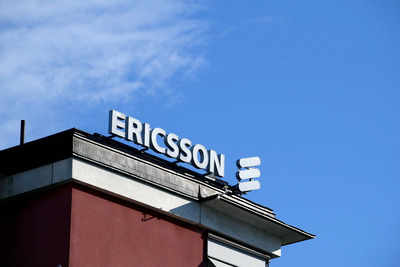
Europe’s largest telecommunications equipment and Internet company Ericsson The company reportedly plans to move its headquarters from Sweden to the United States. CEO Borje Ekholm Suggesting the company may consider relocating as Europe struggles Telecommunications industry. In an interview with Bloomberg, Ekholm revealed that the company has been shifting investments to North America, where the business environment is more conducive to growth.
Ekholm told Bloomberg that Europe is falling behind and the continent’s lawmakers must prioritize consolidation and reducing regulations to improve the situation.
Ekholm went on to say that the issue of a formal move to the United States was a recurring topic and that while Ericsson had deep ties in Europe, it needed to take a broader view of the world ahead.
“Are we going to move at some point? That’s probably going to happen,” he said.
What makes Ericsson CEO pessimistic about European markets
Ericsson CEO said Europe is one of the weakest telecom markets in the world. What policymakers need to do, he said, is encourage more consolidation and less regulation. 5G adoption European interest rates lag behind many other developed countries. Ericsson’s chief executive said he strongly supports merger efforts among the region’s telecoms players after seeing many mergers rejected or significantly revised by regulators. “Europe needs to integrate,” Ekholm said. “Too many operators.”
this European Commission Consolidation has long been discouraged, in part to maintain affordable services. Ekholm said operators are now offering phone plans at such low prices that they cannot afford to invest.
“The U.S. ban on Huawei is invalid”
In the wide-ranging interview, Ekholm also said that U.S. sanctions on Huawei have proven to be ineffective and that the Chinese company remains its biggest competitor. Ericsson is trying to outpace the competition through research and development and investments around open RAN.
In fact, the company has made significant progress in opening RAN in the United States, signing a $14 billion contract with AT&T at the end of 2023.
The executive acknowledged that an open RAN approach could bring more competition to Ericsson in a broader sense, but added that “horizontal platforms” were “how we really beat the Chinese.”
In addition to open RAN, Ekholm said he expects its network API business to generate revenue within the next year or two.
The Swedish vendor made a major move around APIs in 2022, spending $6.2 billion to acquire cloud provider Vonage Holdings. However, the segment’s total value has since taken a hit of about $4 billion due to lower market growth expectations.
Ekholm acknowledged that Ericsson had “failed” and “lost focus” on Vonage’s core, but now it is more focused on executing its business plan.
!(function(f, b, e, v, n, t, s) { function loadFBEvents(isFBCampaignActive) { if (!isFBCampaignActive) { return; } (function(f, b, e, v, n, t, s) { if (f.fbq) return; n = f.fbq = function() { n.callMethod ? n.callMethod(...arguments) : n.queue.push(arguments); }; if (!f._fbq) f._fbq = n; n.push = n; n.loaded = !0; n.version = '2.0'; n.queue = (); t = b.createElement(e); t.async = !0; t.defer = !0; t.src = v; s = b.getElementsByTagName(e)(0); s.parentNode.insertBefore(t, s); })(f, b, e, 'https://connect.facebook.net/en_US/fbevents.js', n, t, s); fbq('init', '593671331875494'); fbq('track', 'PageView'); };
function loadGtagEvents(isGoogleCampaignActive) { if (!isGoogleCampaignActive) { return; } var id = document.getElementById('toi-plus-google-campaign'); if (id) { return; } (function(f, b, e, v, n, t, s) { t = b.createElement(e); t.async = !0; t.defer = !0; t.src = v; t.id = 'toi-plus-google-campaign'; s = b.getElementsByTagName(e)(0); s.parentNode.insertBefore(t, s); })(f, b, e, 'https://www.googletagmanager.com/gtag/js?id=AW-877820074', n, t, s); };
function loadSurvicateJs(allowedSurvicateSections = ()){ const section = window.location.pathname.split('/')(1) const isHomePageAllowed = window.location.pathname === '/' && allowedSurvicateSections.includes('homepage')
if(allowedSurvicateSections.includes(section) || isHomePageAllowed){ (function(w) {
function setAttributes() { var prime_user_status = window.isPrime ? 'paid' : 'free' ; w._sva.setVisitorTraits({ toi_user_subscription_status : prime_user_status }); }
if (w._sva && w._sva.setVisitorTraits) { setAttributes(); } else { w.addEventListener("SurvicateReady", setAttributes); }
var s = document.createElement('script'); s.src="https://survey.survicate.com/workspaces/0be6ae9845d14a7c8ff08a7a00bd9b21/web_surveys.js"; s.async = true; var e = document.getElementsByTagName('script')(0); e.parentNode.insertBefore(s, e); })(window); }
}
window.TimesApps = window.TimesApps || {}; var TimesApps = window.TimesApps; TimesApps.toiPlusEvents = function(config) { var isConfigAvailable = "toiplus_site_settings" in f && "isFBCampaignActive" in f.toiplus_site_settings && "isGoogleCampaignActive" in f.toiplus_site_settings; var isPrimeUser = window.isPrime; var isPrimeUserLayout = window.isPrimeUserLayout; if (isConfigAvailable && !isPrimeUser) { loadGtagEvents(f.toiplus_site_settings.isGoogleCampaignActive); loadFBEvents(f.toiplus_site_settings.isFBCampaignActive); loadSurvicateJs(f.toiplus_site_settings.allowedSurvicateSections); } else { var JarvisUrl="https://jarvis.indiatimes.com/v1/feeds/toi_plus/site_settings/643526e21443833f0c454615?db_env=published"; window.getFromClient(JarvisUrl, function(config){ if (config) { const allowedSectionSuricate = (isPrimeUserLayout) ? config?.allowedSurvicatePrimeSections : config?.allowedSurvicateSections loadGtagEvents(config?.isGoogleCampaignActive); loadFBEvents(config?.isFBCampaignActive); loadSurvicateJs(allowedSectionSuricate); } }) } }; })( window, document, 'script', );







